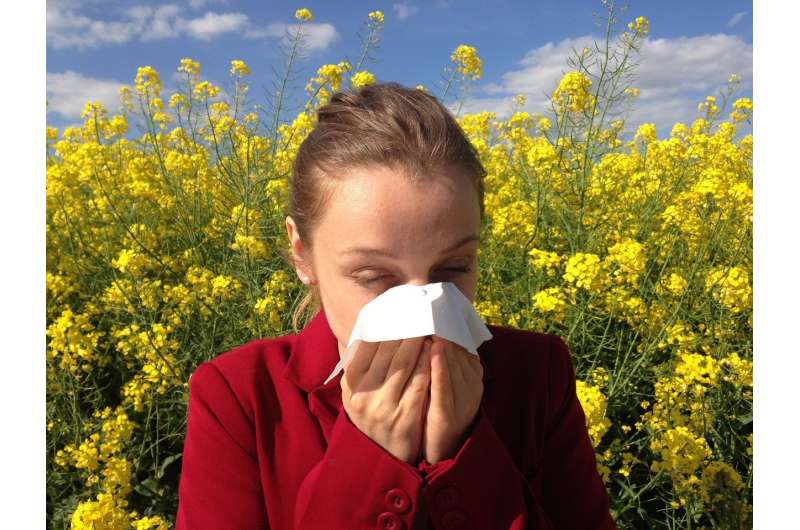There's an allergy epidemic in Africa, and not enough specialists to deal with it

Allergies are on the rise in Africa, but with too few specialists to treat them, and a parallel increase in immune deficiency diseases, the situation is worse than we thought. According to researchers from Ain Shams University in Egypt in an article published in the Journal of Allergy and Clinical Immunology, the answer is more funding, motivated governments and better scientific partnerships.
Across Africa, many communities are faced daily with sewage-contaminated water supplies, unsanitary living conditions and parasite infestations. But rather than strengthening their immune responses, as the hygiene hypothesis would suggest, allergic disease is on the rise. What little data there is suggests allergies and asthma are getting more prevalent and more severe; statistics from Cape Town, Nairobi, the urban Ivory Coast and other areas reveal asthma rates of 18-20 percent, which is comparable to rates seen in the West.
"This tremendous increase in allergy in Africa cannot simply be explained by the change in public hygiene, as there are many pre-hygiene situations across the continent with sewage contaminated water supply, helminth infestations, bare footedness and poor housing, and still there is growing prevalence of allergic disease," said Dr. Elham Hossny, Professor of Pediatrics at the Children's Hospital, Ain Shams University in Egypt and one of the authors of the study. "This may argue against the hygiene hypothesis in our country."
According to the hygiene hypothesis, a lack of exposure can even suppress the immune system. But what, then, is the explanation for the huge increase in allergies in Africa? People in Africa can be exposed to many risk factors that can trigger severe asthma and allergic reactions, including foods, animals and birds, house dust mites, mold spores, stinging insects and aeroallergens like smoke and pollen. But because it was assumed the rates of allergy were low across the continent, there is very little data showing just how big the problem is.
The rise in allergies alone would provide enough of a challenge, but the increase in diseases that compromise the immune system, such as HIV and primary immunodeficiency diseases (PIDs) is exacerbating the problem. The rate of new HIV infections in high-prevalence areas across Africa is still very high, and although only 2,500 patients have been diagnosed with PIDs, the number is estimated to be more like 988,000.
All the while the data and diagnoses do not reflect the real situation, the support will not be forthcoming. Dr. Hossny and her colleagues highlight an urgent need to establish PID registries, stem cell transplantation facilities and neonatal screening programs, and to boost the study and practice of allergy medicine and immunology in Africa.
"We need to deliver a message to the policy makers in Africa and in everywhere in the world to help us promote our specialty and support our patients and perform the required research at a global standard," she said. "In order for African allergists and immunologists to provide better care for their patients and to be able to perform cutting-edge research in the field, they need to be empowered by motivated governments, dedicated funds, and compassionate scientific partnerships."
All of these vital solutions will require dedication and funding – something Dr. Hossny and her colleagues are seeking in collaboration with researchers and healthcare providers.
More information: Yehia M. El-Gamal et al. Allergy and immunology in Africa: Challenges and unmet needs, Journal of Allergy and Clinical Immunology (2017). DOI: 10.1016/j.jaci.2017.09.004

















